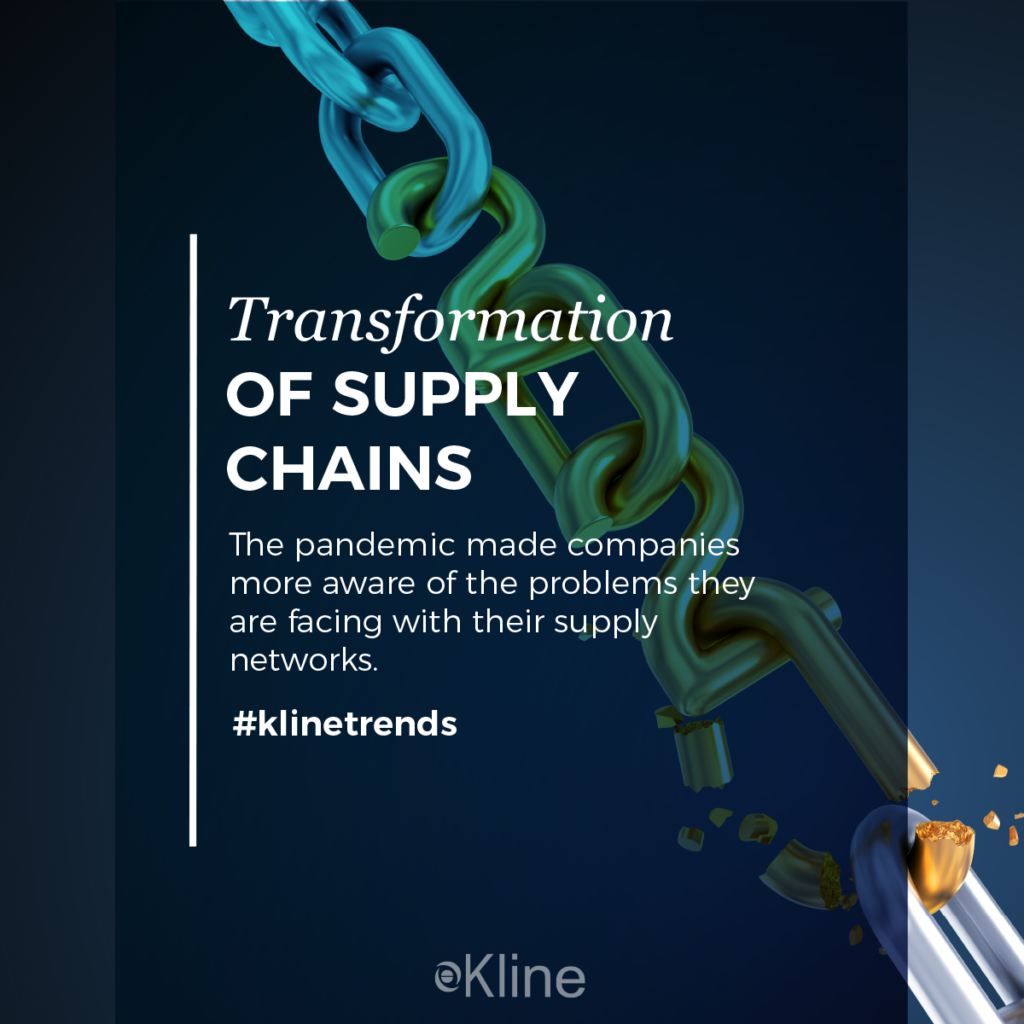[TREND 19] Transformation of Supply Chains

The COVID-19 pandemic has caused trade disruptions. One example is the global pharmaceutical industry, which is dependent on China’s exports, as the country is the largest producer of pharmaceutical ingredients. With the virus’ outbreak in China and lockdown impositions, followed by international transportation restrictions, the raw material supply for pharmaceutical drug production from China slowed. This issue has the potential to disrupt pharmaceutical manufacturing in many countries. A large share of medications sold in the United States is produced in China and India, while almost 80% of the United States’ API demand is met by these two countries. As one of the world's largest producers of generic medicines (producing 20% of global generics supply), India imports almost 70% of its APIs from China; therefore, disruption in its supply chain could result in drug supply shortages.
Furthermore, COVID-19 led to a disruption in the supply of ingredients, particularly imported ones. This led to an increase in prices of ingredients. For example, in the Middle East, the price of PCMC increased by 25%-30% as distributors were struggling to procure PCMC till Q3 2020.
The shortages in supply and increasing demand for select products is causing some shock to supply chains. The pandemic made companies more aware of the problems they are facing with their supply networks. While re-shoring of, for example, pharma (API) manufacturing started before the pandemic, the supply chain issues during the earlier days of the pandemic prompted more (Western) companies to look at options for bringing manufacturing back to the West. In addition, governments are now actively promoting re-shoring/local manufacture of certain essential drugs/APIs. The Indian government is planning to boost local API production in India. To facilitate that plan, it has made land and a massive budget available. The government is actively trying to persuade companies to relocate from China to India.
As the pandemic has revealed many vulnerabilities in supply chains and raised doubts about globalization, de-globalization and localization could be the natural next steps. The challenge for companies would be to maintain the low cost now expected from consumers and ensured by competition.
#klinetrends #kline2020countdown #supplychain #manufacturing
Follow our 2020 COUNTDOWN CALENDAR for the 30 biggest trends HERE
Categories
Recent Posts
- How are Companies Using Innovation to Meet LATAM’s Industrial Lubricant Needs?
- Why is India a Hotspot for Professional Beauty Brands?
- 3 Ways to Better Target Salons and Independent Stylists
- How are the EU’s New Sustainability Regulations Reshaping the Personal Care Industry?
- Market Availability of Glyphosate Extended to 2027 in Mexico Due to Lack of Viable Alternatives and Concerns Over Food Production and Security

